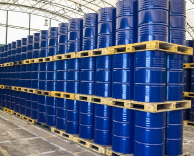Essential Properties of Steam and Gas Turbine Oil for Optimal Performance
Introduction
Turbines are the backbone of power generation in modern industries, and their efficiency depends heavily on the quality of the lubricant used. Steam and gas turbine oils must possess specific properties to ensure smooth operation, reduce wear and tear, and prevent failures under extreme conditions. This guide explores the mandatory properties that turbine oils must have to deliver optimal performance and reliability.
Why Turbine Oil Properties Matter
Turbine oils play a crucial role in reducing friction, minimizing wear, and maintaining system cleanliness. The wrong oil or one lacking essential properties can lead to overheating, component failure, and reduced turbine efficiency. Choosing the right oil ensures longevity, reduces downtime, and optimizes performance.
Key Properties of Steam Turbine Oil
3.1 Good Demulsibility
Demulsibility refers to the oil’s ability to release water. Since steam turbines often operate in humid environments, water contamination is a common issue. Oils with excellent demulsibility separate water quickly, preventing corrosion and sludge formation, which can impair performance.
3.2 Foam Suppression and Air Release
Foam suppression prevents the formation of foam that could disrupt lubrication. Effective air release ensures that entrained air bubbles escape quickly, maintaining proper lubrication and preventing cavitation damage to turbine components.
3.3 Anti-Rust Protection
Rustproofing prevents the oxidation of metal surfaces exposed to moisture. This property is essential for extending the life of turbine components and ensuring consistent operation in humid or wet conditions.
3.4 Anti-Wear Protection (Certain Cases)
Anti-wear additives form a protective film on metal surfaces, reducing metal-to-metal contact. This is particularly important in turbines with high-speed or high-load components, where wear can lead to costly repairs and downtime.
Key Properties of Gas Turbine Oil
4.1 Anti-Corrosion Protection
Gas turbines operate at high temperatures, making them prone to oxidation. Anti-corrosion additives protect both the base oil and metal surfaces from damage caused by corrosive acids formed during operation.
4.2 Anti-Scuff Properties (Certain Cases)
Anti-scuff additives provide protection under severe load and high-temperature conditions. These additives chemically bond to metal surfaces, ensuring protection when traditional anti-wear films fail.
4.3 Thermal Stability
Thermal stability ensures that the oil remains effective at high operating temperatures. This property minimizes oil breakdown and the formation of deposits, ensuring smooth turbine operation and reducing maintenance needs.
Additional Properties for Optimal Performance
5.1 Oxidation Resistance
Oxidation resistance is critical for preventing the formation of acidic by-products and sludge. This property extends oil life and reduces the need for frequent replacements.
5.2 Viscosity Index
A high viscosity index ensures that the oil maintains consistent viscosity across a wide temperature range, providing reliable lubrication under varying conditions.
5.3 Contaminant Handling
Effective contaminant-handling properties help the oil to manage and neutralize impurities such as dirt and metal particles, maintaining system cleanliness and preventing damage.
Common Challenges with Turbine Oils
Best Practices for Turbine Oil Maintenance
Regular oil analysis to monitor properties like viscosity,
acidity, and water content is essential. Another critical test is
BDV Testing (Breakdown Voltage Testing)
which measures the dielectric strength of turbine oil to ensure it
meets safety and operational standards. Learn more about how BDV
Testing ensures oil reliability and protects equipment here.
Use filtration systems like the
TOFS (Turbine Oil Filtration Systems)
to remove contaminants such as dirt, moisture, and sludge. These
systems are designed to enhance oil life and ensure optimal
turbine performance under demanding conditions. Explore the
benefits of TOFS for turbine oil maintenance here.
How to Choose the Right Turbine Oil
When selecting turbine oil, consider factors such as:
Future Trends in Turbine Oil Development
The industry is moving towards synthetic oils and bio-based lubricants, which offer enhanced performance, lower environmental impact, and extended service life. Innovations in additive technology are also improving the thermal stability and oxidation resistance of modern turbine oils.
Conclusion
The performance and longevity of turbines depend significantly on the quality and properties of the lubricating oil used. By understanding and prioritizing mandatory properties like demulsibility, thermal stability, and anti-corrosion protection, operators can ensure efficient and reliable turbine operation. Regular maintenance and proper oil selection are key to maximizing the benefits of these advanced lubricants.





